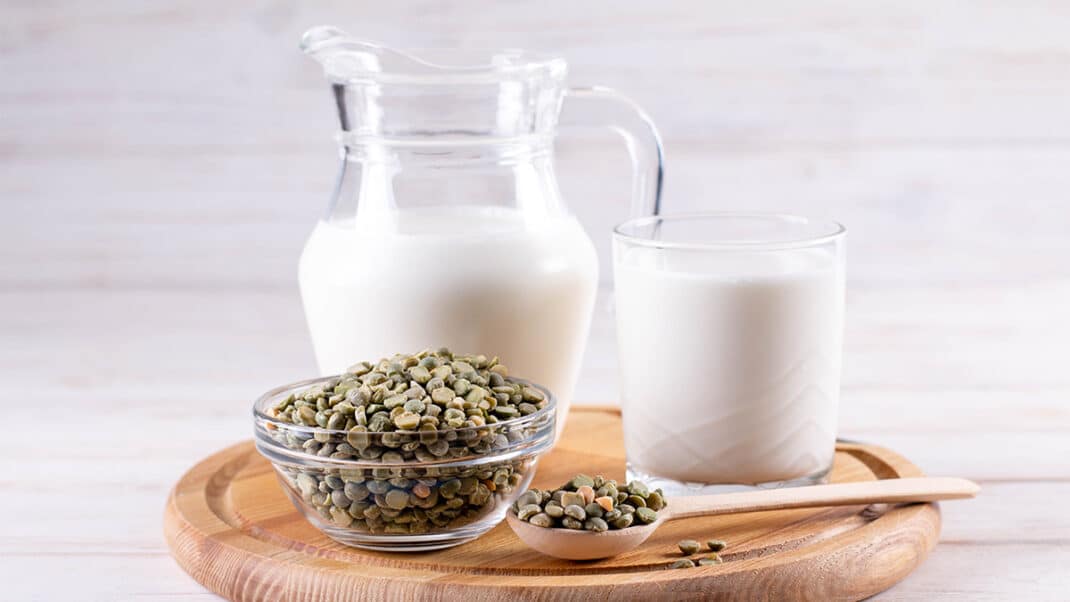Can We Get All of Our Nutrients From Food?
Despite a few common deficiencies, most people don't need vitamin and mineral supplements.
| Earn 1 CEC - Take Quiz

You’ve probably come across this argument from nutrition gurus: Modern diets just don’t have enough of the nutrients we need from food.
But does the evidence support that? Are we doomed to be undernourished unless we pony up for nutritional supplements? There are two sides to this story, so let’s first explore the evidence that crucial nutrients from food are missing in modern diets.
Which Nutrients From Food Does the Government Deem Important?
The Centers for Disease Control and Prevention collect vitamin- and mineral-deficiency data every few years, in rigorous detail. Although several vitamin and mineral deficiencies are somewhat common, four stood out in the last CDC report: vitamin D, iodine, iron and polyunsaturated fatty acids (Pfeiffer et al. 2013).
Public awareness of these nutrients from food varies, as vitamin D and omega-3 fatty acids (the latter are a type of polyunsaturated fat) have received substantial attention in the past few years. One reason among many for the attention on vitamin D deficiency is that it’s more common in darker-skinned people (Harris 2006). However, recent research suggests that while African-Americans may average lower levels of measured vitamin D compared with Caucasians, both groups have similar levels of bioavailable vitamin D (Powe et al. 2013). Suffice it to say, much research must be done to find out what actually constitutes deficiency in different people.
Iron deficiency, a well-known issue for women with anemia, is also increasingly a problem in children, especially from lower-income groups. Iodine deficiency often comes up in the context of pregnant women, as iodine is crucial for fetal development (Friedman et al. 2015; Brotanek et al. 2007; Hollowell & Haddow 2007).
Polyunsaturated fats are more controversial. Foods are increasingly fortified with omega-3 fatty acids, and fish oil is among the most popular dietary supplements. And the CDC report (which measured fatty acids for the first time) showed relatively low levels of polyunsaturated fats, including omega-3s, in several nonwhite population groups (Pfeiffer et al. 2013). So you might think polyunsaturated fats should jump near the top of our list of important nutrients from food. Not so fast—we’ll discuss the ins and outs of this issue a little later.
We’re also seeing innovative research on subclinical deficiencies that cause problems as we age. Much of this research, known as the “triage theory of aging,” falls under the work of Bruce Ames at the University of California, Berkeley. His research shows some of the first examples of the body prioritizing nutrients for survival over longevity (McCann & Ames 2009). When the body isn’t getting optimal nutrient levels, it may prioritize/triage functions essential to life (like keeping the brain and heart working) and deprioritize others that aren’t (like sexual function).
Speaking of aging, seniors are especially prone to nutrient deficiencies. For example, seniors absorb vitamin B12 less efficiently and produce less vitamin D with sun exposure than younger adults (Andrès et al. 2004; Linnebur et al. 2007).
As you may have figured out, the most important deficiencies in the U.S. aren’t a single list. They vary depending on who you are.
Why Might Modern Diets Have Insufficient Nutrition?
If you compare today’s diets with those of a hundred years ago, three things stand out.
First, the food categories we eat are much more homogenous. Wheat, corn and vegetable oils make up a huge portion of our diet—the average American consumes over 130 pounds of wheat per year (ERS 2015; Ranum, Peña-Rosas & Garcia-Casal 2014; Statista 2016). These three foods (or food products, when it comes to high-fructose corn syrup, cottonseed oil, etc.) are rather low in vitamins and minerals, and lack potentially beneficial phytochemicals found in other plants.
Second, we eat a lot more processed foods these days. The simple act of processing a food is not harmful, so pressing olive oil out of whole olives doesn’t make it unhealthy. But when we grind certain foods down to a powder (like wheat flour) and make that a large portion of our diet, we take in a lot of “acellular carbohydrates” (Spreadbury 2012). (Basically, plants and animals have cells, which contain water, but when we eat dried, powdered grains, a lot of acellular carbohydrate enters the gut all at once, which may predispose some people to health issues.)
Finally, the plants we eat (and the ones animals eat, which become our meat) grow in soil that’s less mineral-rich than it used to be (Davis, Epp & Riordan 2004). And levels of selenium and magnesium can vary widely depending on modern farming practices and natural concentrations (Hunter et al. 1990). Moreover, roughly half of Americans may be drinking tap water that is low in magnesium and/or calcium. This may be important, given the potential for high-mineral water to help protect against cardiovascular disease (Azoulay, Garzon & Eisenberg 2001; Momeni et al. 2014).
See also: Important Nutrients Lacking in Diets
So, Should We All Take Multivitamins?
Sometimes, when a pill is widely used and occasionally helpful, people joke around about “putting it in the water supply”—think statins, antidepressants and the like. Joking aside, those drugs can have clear side effects. Multivitamins, by contrast, are marketed as being safe, with few if any side effects widely publicized, so why aren’t they used more often?
Well, it turns out they have little to no effect on cancer or cardiovascular-disease mortality, according to the best evidence (Gaziano et al. 2012; Sesso et al. 2012; Huang et al. 2006). The reasons for this are complex, but a few are intuitive.
For instance, just because a pill has 100% of the Recommended Dietary Allowance of vitamins and minerals doesn’t mean the pill will help an individual, since RDAs are population-based estimates. And when you add up the vitamins you get in those pills, plus what you get in your diet, bad things can happen. For example, research has increasingly pointed to cancer risks from folic acid supplementation (Baggott, Oster & Tamura 2012). So eating nutritious foods, rather than swallowing nutrient-filled pills, may be the safer way to avoid deficiency.
This reasoning extends to fish oil supplements. While fish oil has mixed evidence for health benefits, fish tends to perform better than separated fish oil in a direct comparison (Grey & Bolland 2014; Cobiac et al. 1991). People generally focus on getting more and more omega-3 fatty acids, without knowing the biochemistry of why this issue came up in the first place.
Omega-3s in the body often directly compete with omega-6s, with the latter typically being more inflammatory. The ratio of the two is more important than the absolute level of omega-3s in the diet (Simopoulos 2002). When you eat that salad doused in dressing, the dressing is likely to contain large amounts of omega-6s (such as from soybean or cottonseed oil) as well as a smaller amount of omega-3s. We already get a large amount of omega-6 from a variety of foods, including vegetable oils and meats, which can skew our body toward inflammation. And attempting to balance out the ratio by consuming fish oil supplements is probably a bad idea, as fish oil has suprisingly little evidence for efficacy in disease prevention, plus supplemental fish oil can be prone to potentially harmful oxidation (Grey & Bolland 2014; Albert el al. 2013).
See also: The Truth About Vitamins and Supplements
A Closer Look at Critical Nutrients From Food
Government reports aside, what nutrients should we worry about the most?
Minerals do tend to be rather low in modern diets—not only because we don’t drink hard water and we have lower-mineral soil than before, but also because minerals are pretty bulky. To get 100% of the RDA for magnesium, you’d have to swallow a large pill, whereas you can get 100% of each of your B vitamins combined in a small pill. Because supplement companies want to make money, they will typically not market multi formulas that have a lot of minerals in them. And when minerals are included, they are often in forms that aren’t well-absorbed, like magnesium oxide (Lindberg et al. 1990).
Speaking of B vitamins, they are, quite simply, overrated. Not that they don’t play important protective roles against some diseases, but people tend to think B-vitamin pills and injections will magically solve “low energy” and other common complaints. This is generally not true, and simple measures such as getting more sleep and destressing will pay much higher dividends. That being said, it’s important to get enough B vitamins if you’re an athlete, and as such, you may have higher-than-average requirements (Woolf & Manore 2006).
Fat-soluble vitamins (A, D, E and K), on the other hand, get very little attention but are enormously important and often deficient. Many people take these on an empty stomach, even though taking them with fat increases absorption levels from negligible to quite high. And while a variety of foods contain other vitamins and minerals, not many contain fat-soluble vitamins. Furthermore, people with obesity also need more vitamin E, even adjusting for body weight, as shown in a recent high-impact study (Mah et al. 2015).
While medical professionals tend to mention vitamins D and A quite often, many of them aren’t even aware of the most underrated fat-soluble vitamin: K2. Completely different from the better-known K1, this vitamin is essential to preventing heart disease by reducing calcification of arteries (Shea & Holden 2012). And K2 is very low in diets because it occurs mainly in pastured dairy products and in natto, the Japanese fermented soybean that most Americans don’t eat (Tsukamoto et al. 2000).
Do We Really Need to Supplement?
The short answer is no. People who have low levels of micronutrients almost always lack whole foods in their diets or have low-variety diets (Roberts et al. 2005).
And consuming single nutrients, such as individual antioxidants, is less likely to improve health than taking in a variety of phytochemicals through—you guessed it—real food (Liu 2004; Hart et al. 2012). Antioxidant supplements have even shown potential to harm health in many studies (Bjelakovic, Nikolova & Gluud 2014), which makes sense given that high levels of certain individual nutrients could throw a wrench in normal biochemical pathways. What’s more, supplements sometimes harm people because of simple manufacturing errors, as happened when selenium supplements contained 200 times the amount listed on the labels (MacFarquhar et al. 2010).
That being said, can you get enough micronutrients through diet alone, and if so, how? First of all, remember there are no superfoods, but there are staple foods high in nutrients. Many fruits and vegetables are high in vitamins, and animal products (plus nuts and legumes) are often rich in certain minerals. Moreover, some foods are especially high in certain nutrients, making them useful if you find you are low in a nutrient. For example, shellfish is often quite high in minerals, eggs are rich in fat-soluble vitamins, leafy greens are rich in vitamin K and other nutrients, and liver is an overall nutritional powerhouse (that happens to be considered unpalatable to younger people, but doesn’t have to be if cooked properly).
Even though thousands of studies have explored the health impact of nutrients from food, we’re unsure about the exact effects because randomized trials typically last only a few months or a couple of years. But we can draw insight from one last example: indigenous cultures around the world. People in many of these cultures enjoy fairly long lifespans (even without health care and with occasional food shortages), and nutrient measures tend to be mostly adequate even though the people literally never take supplements (Lindeberg et al. 1997; Srikumar et al. 1994).
The bottom line: Getting meganutrition through pills is probably less important than avoiding processed and unhealthy foods. You don’t have to jam-pack your diet with exotic berries high in antioxidants and eat nothing but power smoothies. Focus on getting a variety of foods, as your omnivorous ancestors did, and keep intake of junk foods low (note there’s no need to ban sugar from your life). Though modern foods and diets may not be quite as nutritious as in centuries past, we are much more likely to get enough food each day, and we have the luxury of choosing what we eat. Take advantage of that.





